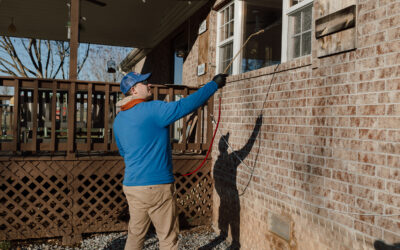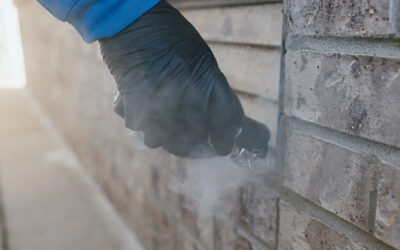
How to stop mosquitoes from entering your home
Mosquitoes are bad enough outside, but when they get into your home, they can cause serious problems for you and your family. Although mosquitoes can be simply annoying when they buzz around, it really hurts when they bite you, and their bites can continue to itch for several days. People with sensitive skin are likely to experience even more skin irritation, and some people can develop serious infections of the skin and/or blood. In addition to these serious health risks, anyone who is bitten by a mosquito is at risk for contracting a deadly disease. While outbreaks of Zika Virus, Dengue Fever, and other serious diseases have been documented in the United States, West Nile Virus is the most common disease carried by mosquitoes in the U.S. All of these diseases are caused by bloodborne pathogens spread by mosquitoes who bite an infected person or animal and then go on to bite another person or animal. Although not all species of mosquitoes carry diseases, it’s almost impossible for the average person to tell the difference between species. The safest bet is to do everything you can to avoid contact with all mosquitoes. Preventing mosquitoes from entering your home should be your top priority during the warmer months of the year. Luckily, there are several steps you can take to repel mosquitoes from your home.
Steps to take to repel mosquitoes from your home
Preventing mosquitoes from entering your home will help you keep your family safe from several serious health risks. The best way to decrease the likelihood that mosquitoes will enter your home is to prevent them from breeding in your yard. Here are some ways to do that:
Plant natural deterrents
Place plants near your external doors, either in containers or in beds, that naturally deter mosquitoes. Some of these include rosemary, lemon balm, sage, garlic, peppermint, marigold, citronella, basil, geraniums, lavender, and catnip.
Dump any stagnant water pools
Don’t allow any pools of water to collect on your property when it rains. Mosquitoes are attracted to standing water because it’s the perfect place for them to lay their eggs, which hatch into larvae (baby insects) who live in the water while they grow and develop. Even a couple of inches of stagnant water in a bucket is plenty of room for mosquitoes to lay countless eggs, leading to countless new mosquitoes living on your property.
Spread cedar mulch
Covering your garden beds in cedar mulch will help absorb extra moisture that otherwise would attract mosquitoes there.
Install yellow LED lighting outdoors
Like many insects, mosquitoes are attracted to the warm light of conventional light bulbs typically used in porch lights. Studies have shown that mosquitoes are less attracted to yellow LED lighting.
If you try these tips and you’re still dealing with mosquito problems, West Termite, Pest & Lawn is ready to help. Call us today so you can enjoy the rest of the season in your backyard.
More posts from West Termite, Pest & Lawn
Pestproofing Entry Points Before Spring
As spring approaches in Arkansas, homeowners face an increased risk of pests seeking warmth, food, and shelter. Many infestations begin with small, unnoticed entry points that allow insects, rodents, and other pests to move indoors. Pestproofing your home before the...
Early Spring Termite Activity in Arkansas
As Arkansas begins to warm in early spring, homeowners may assume termites remain dormant until the summer months. In reality, spring termite colonies can become active much earlier, especially as soil temperatures rise and moisture levels increase. Subterranean and...
Preparing Your Home for Early Spring Pests
As winter fades and temperatures rise in Arkansas, homes become vulnerable to a fresh wave of early spring pests. Early spring is a critical time to take preventive action because insects, rodents, and other pests start emerging from dormancy, seeking food, warmth,...



